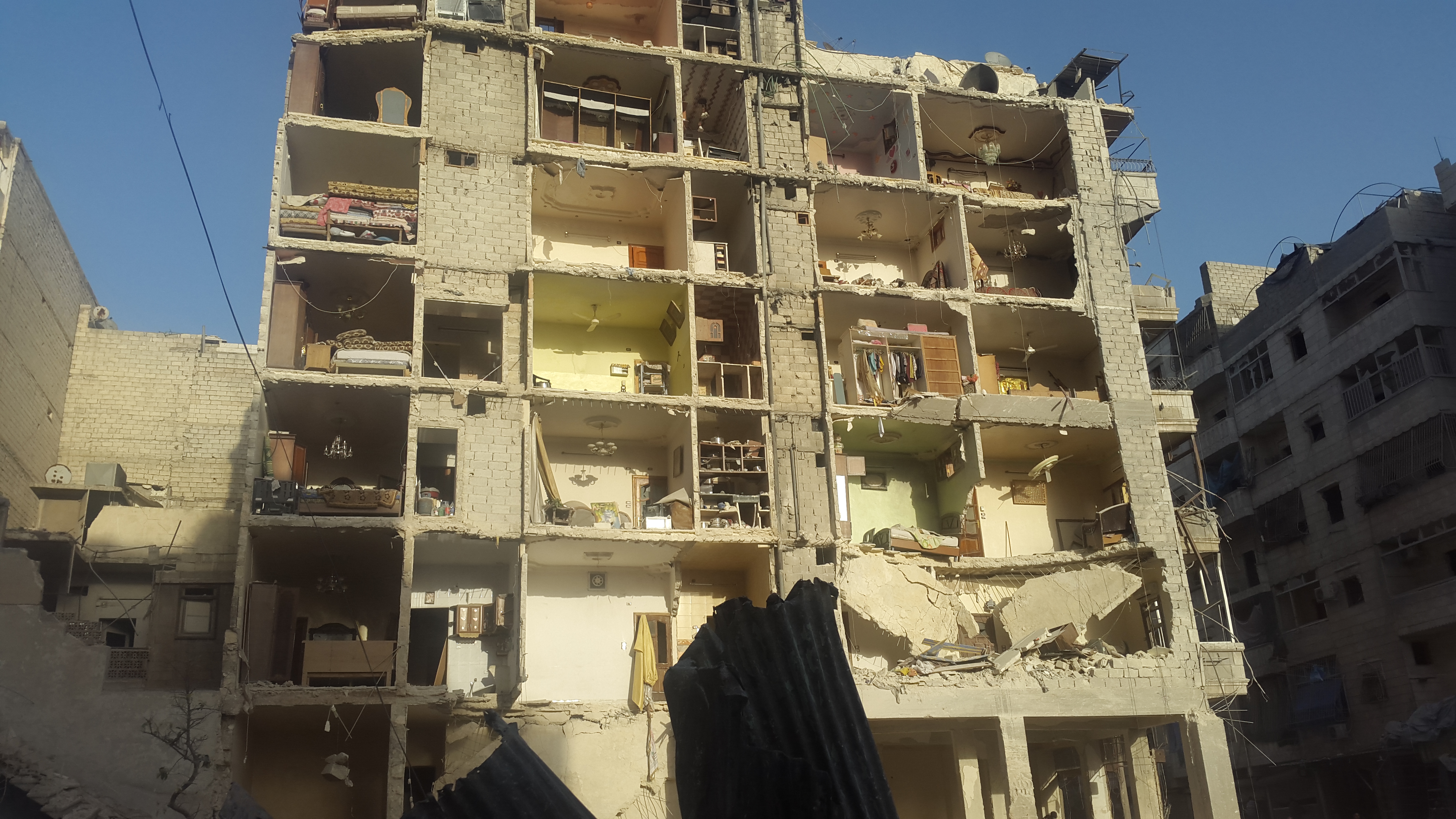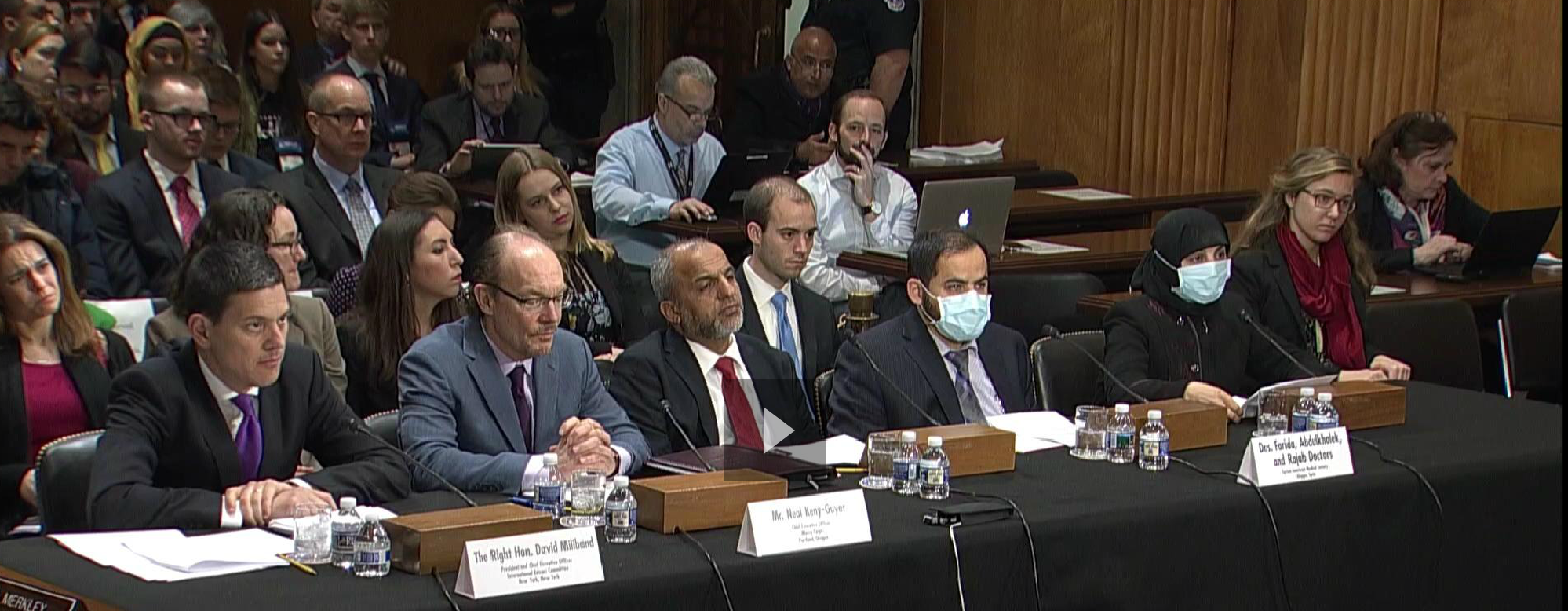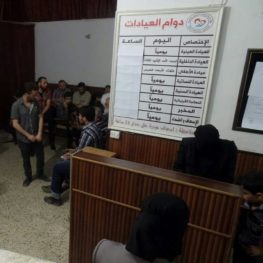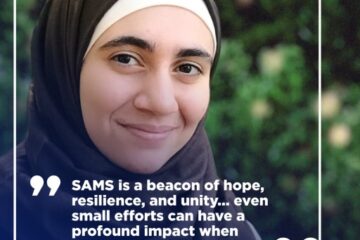March 21, 2017
Dr. Abdulkhalek remembers all too well the moment that a rocket targeted the house next to his.
“I remember when we were in our house and the plane targeted next to our house with a bunker buster rocket. The sound of that rocket was horrible,” he says, adding that he believes the attack was meant for his home.
This was one of the many moments that Dr. Abdulkhalek feared for his life – these moments became all too frequent throughout the heightening siege and aerial bombardment campaign over Aleppo. One time, a rocket fell directly in front of his car, shattering the front glass. He also remembers the moment an airstrike targeted the fourth floor of his private clinic, “I was surrounded by rubble,” he recalls. He emerged somehow unscathed, covered in dust.

A nearby building in eastern Aleppo after an aerial strike.
It seemed that no place was safe for Dr. Abdulkhalek and his family, least of all, his hospital he worked at. The Syrian ophthalmologist, the last in besieged eastern Aleppo, was the director of the small hospital known as M3. In early December of 2016, the city’s largest trauma facility, known as M10, succumbed to aerial attacks and was forced to close. M3 hospital was then one of the two functioning hospitals providing care to more than 300,000 civilians, including 85,000 children. There, Dr. Abdulkhalek worked alongside his wife, Dr. Farida, who was the last OBGYN in the besieged city. Despite the risks to himself and his family, he refused to leave. In the last weeks, Dr. Abdulkhalek has testified to the United Nations and the Senate Foreign Relations Committee, urging the international community to prevent another Aleppo from unfolding before our eyes and protect the people of Syria.

Drs. Farida, Abdulkhalek and Abo Rajab testify at the Senate Foreign Relations Committee

At M3, a board shows the hospital’s specialties.
By October of 2016, Dr. Abdulkhalek was seeing about 85 patients every day. Because resources were very limited, Dr. Abdulkhalek and his colleagues had to resort to desperate measures. Medical supplies became so scarce in the besieged city that he resorted to making his own eye-drops.
“We had to use the floor of our operating rooms to accommodate two surgeries in each of them at the same time. Doctors were performing major surgeries on the floor, sometimes without anesthesia.”
Their resolve was tested day after day. On December 11, 2016, M3 hospital in Aleppo was struck by a chlorine attack – the second in just a few days. The medical staff immediately ran into their inner room, closed the door and covered their faces. They remembered all too well the young victims of the previous attack. With only one unit of oxygen, the staff had passed oxygen masks from one child to another, working tirelessly to keep them alive.
“These chlorine attacks occurred after repeated attempts by the regime and its allies to destroy the hospital using barrel bombs and cluster munitions had failed. Instead, they resorted to chemical attacks to drive us out,” Dr. Abdulkhalek said in a hearing at the Senate Foreign Relations Committee on March.
Dr. Abdulkhalek and his wife still found bittersweet moments of relief. One day, they heard that their daughter’s school was targeted by an airstrike, so they rushed to the school to look for her: “The fondest moment was when we found that she was ok. She wasn’t hurt, and no child was hit. But other schools had many injured children.”
Now, his family is scattered between countries. “My relatives are in Turkey, my sister in Qatar, my other sister in Saudi Arabia, my other relatives in Jordan. I am living now with my immediate family, my wife and daughter alone, without seeing any of our relatives.”
In addition to advocating for an end to the targeting of medical and civilian infrastructure, Dr. Abdulkhalek urged actors in the crisis to end siege conditions, “Aid is not reaching the people most in need, particularly in non-government areas,” he says, recalling that in Aleppo, aid for the city was disproportionately given to the western portion of the city.
“It even got to the point where residents of western Aleppo would sell their excess rations to residents of eastern Aleppo, for extremely high prices,” he adds.
Despite the challenges of merely surviving in Aleppo, Dr. Abdulkhalek still has hope for Syria.
“The new generation gives me hope for a brighter future in Syria. They will strive for peace,” he says.



